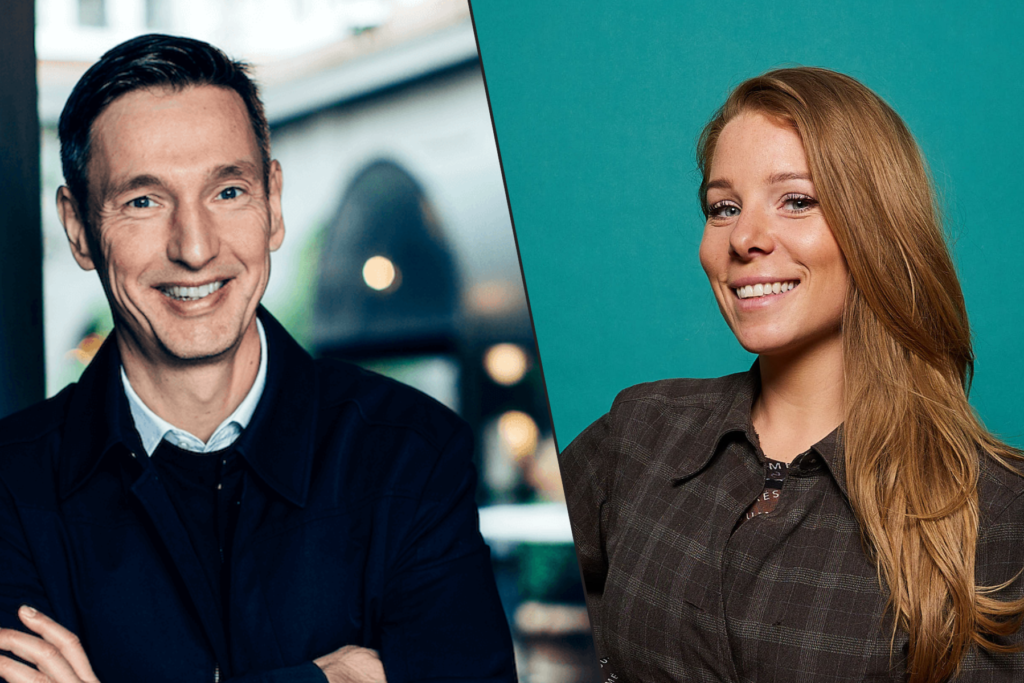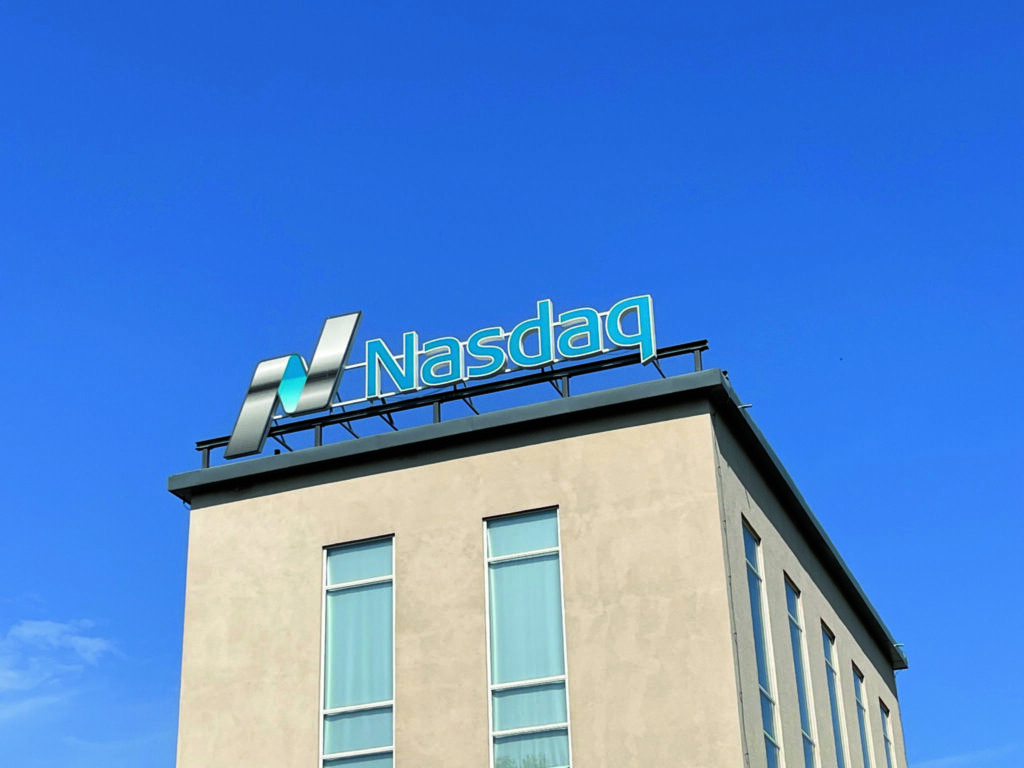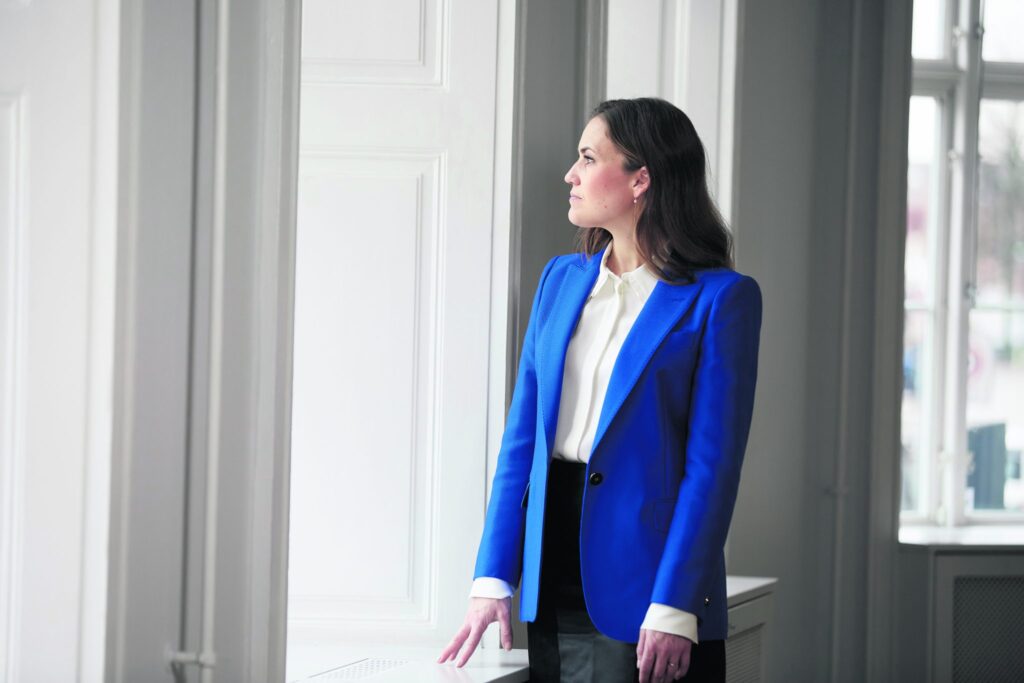Invest
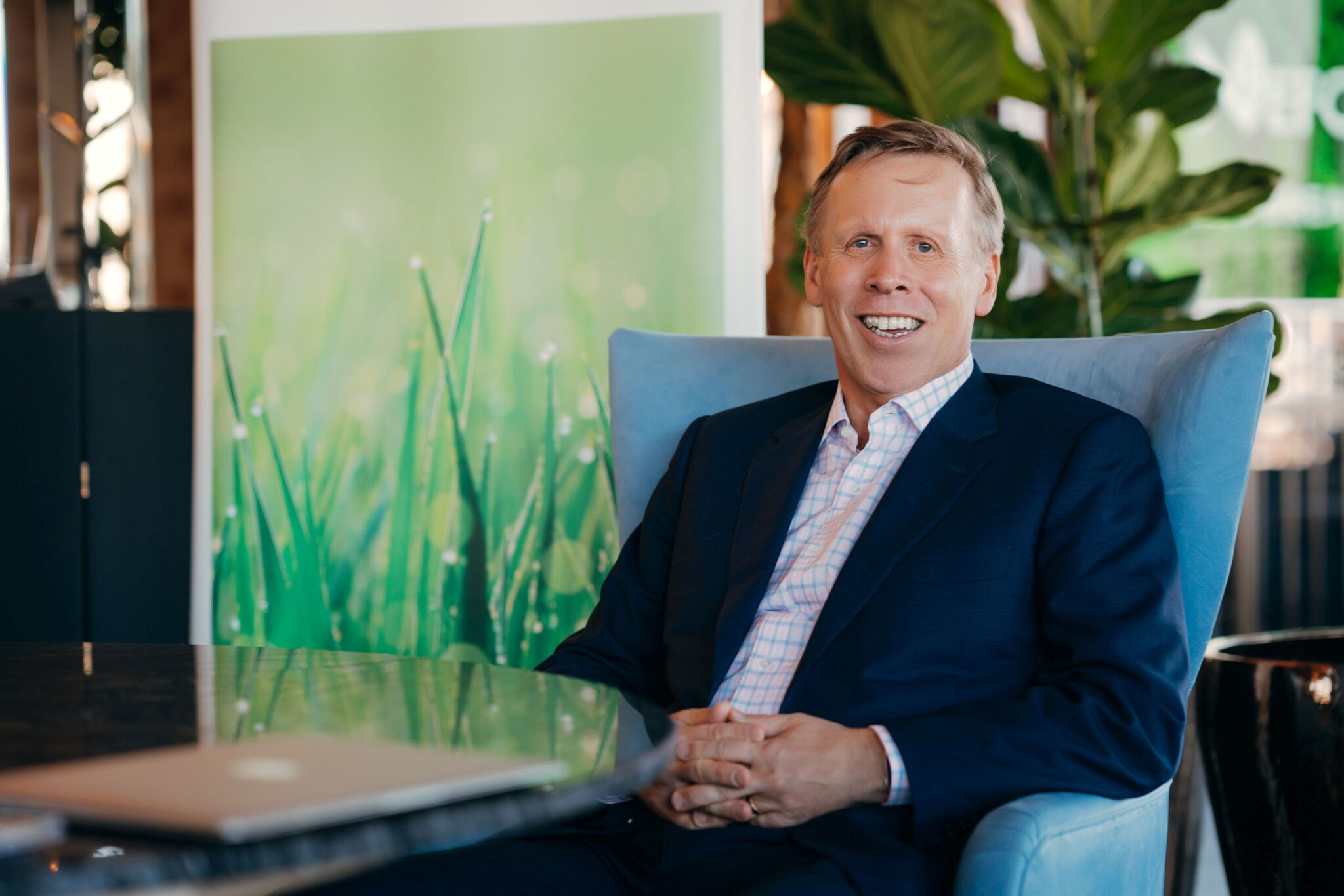
Nefco provides finance for green projects by Nordic SMEs
Flemming Østergaard
There is no shortage of good ideas in innovative start-up companies working with green technologies and solutions. Money is always a problem in the start-up phase, and it is often solved with the founder’s own savings, friends and families and later on, angel investors or venture capital funds. But the next phase where the company must grow and secure a better foothold in the market also requires money. However, it is still a risky phase where banks typically say no. This is where Nefco comes into the picture. The financial institution, which was originally founded by the five Nordic countries in 1990 – back then focusing on sources of pollution in the Baltic Sea – provides various types of financing in this phase.
”At Nefco, we can do almost everything in terms of loans and equity and everything in between. But our main focus is actually on the in-between – that’s what we often call the mezzanine financing. It’s between the loans that banks offer provided they get security and the equity that shareholders provide. There is a lack in the market for that kind of financing, especially critical for Nordic companies that have developed new solutions and need to grow. They are often rejected by the banks because they don’t have security and they’re considered to be too high risk. But we can provide unsecured loans, because we can take on more risk than the bank,” says Trond Moe, Managing Director of Nefco.
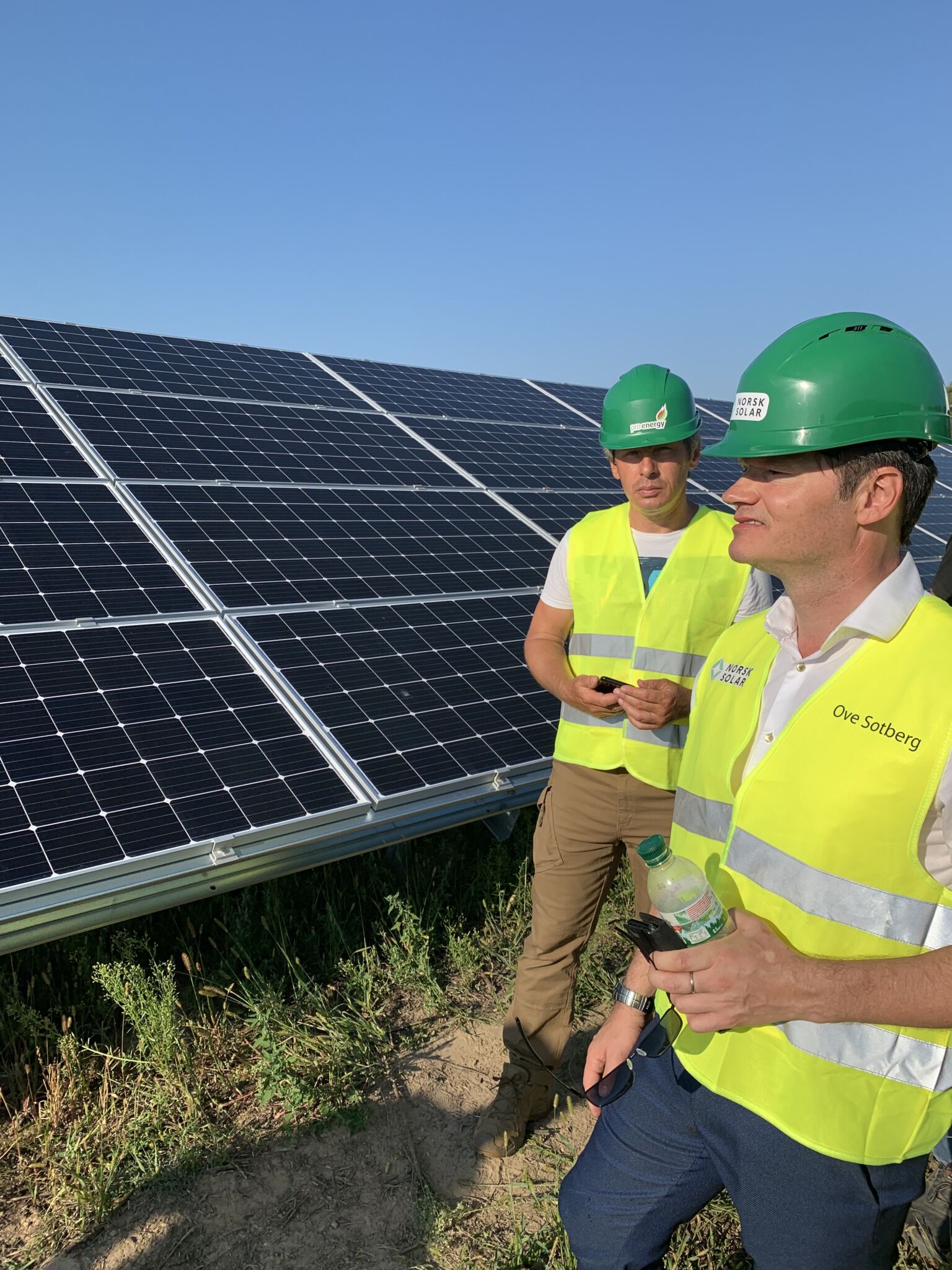
Disruptive ideas wanted
Assessing the risk in a realistic manner is of course highly important, and not an easy task. Because, often times when we talk about potential disruptive solutions and technologies, we are entering unknown territory. In those circumstances it can be tempting to be conservatively minded when deciding who gets the sufficient finance and who doesn’t. But that is not the case at Nefco.
“We cannot solve our problems with the same thinking we used when we created them.”
– Albert Einstein.
“We talk to specialists in the related technology and business areas and we also have our own in-house expertise. And we are not thinking conservatively. On the contrary, we like and encourage disruptive projects and new ideas. That’s actually why we exist. We are very fond of disruptive solutions. At the same time, we also need to protect our capital. We put a price on risk – a higher price for riskier loans means that the portfolio can accommodate some losses. Besides, we are not financing start-ups with untested ideas. We look at the maturity of technology, full-scale production capacity and the commercial perspectives. If those things are in place, we want to get in as early as possible,” Trond Moe says.
Not all companies get through the eye of the needle. However, most rejections occur because the projects do not have sufficient environmental perspectives and potential. For example, if the project contains fossil fuels, it is quickly rejected. In other cases, it is not the idea that is wrong. The companies are just too early. In those cases, Nefco has a discussion with the companies and keeps in touch.
“Very often it happens that they come back a year or two later, and then the project is mature enough for them to obtain the financing,” Trond Moe adds.
Set an example for the financial industry
But it’s one thing to provide SMEs with the capital to grow. It’s a different matter to make the upscaling successful to a degree so that companies’ technologies and solutions have global reach. Nefco decided in 2021 to implement a new strategy, which is to prioritize the companies that have the best opportunities to reach the global market.
“Many Nordic SMEs actually have the potential. We can provide the financing for the upscaling they are missing. We also have another goal in giving them the funding. We want to set an example for the entire finance industry so that more of the traditional financial players will do as we do. It is also an important part of our strategy. That we can prove to the big financial players that they have to take a bigger risk with green projects – and that in the end it will prove to be very profitable for them.”
Public money is a good first step to move things in the right direction, Moe points out. But to really move things faster it’s highly important to make private capital move as well.
“We need to influence the financial markets and big financial players of the world to move the money to the right type of projects. That’s the only way to really solve things, and we are far from that today. But there is very important work going on in the European Union with the taxonomy, which is a system to classify green financing. We are using the system already although many details are still being worked out. The taxonomy will have a significant impact on financing in Europe and probably in the whole world. Investors and pension funds, I believe, will be quite interested in putting capital into projects that are verified as being green according to this classification system.”
It’s about much more than climate
Fossil fuels still provide the most energy in the global economy and renewables only a small part. The undeniable fact is, that we have a long way to go before we are even close to a zero-emission society.
”Unfortunately, we do have a long way to go on climate. We need to go much faster. But the climate issue is only half the problem – the nature crisis is the other half. We have extensive biodiversity loss, massive extinction rates, resource depletion, plastic pollution, chemical pollution etc. We need to focus much broader than just climate and we have supported a number of companies dealing with issues like resource efficiency and circular economy.”
The importance of focusing more on other environmental issues as well has been pointed out numerous times by scientists. E.g., in a report by IPBES and IPCC in 2021 in which they basically concluded, that climate and biodiversity are inextricably connected with each other and with human futures. Humanity must solve the climate and nature crises together or solve neither. However, things are going slowly and Trond Moe finds it frustrating.
“It is frustrating to see how conservative the financial industry is and how risk averse they are. I don’t think the financial industry really sees the global risks, because when they finance fossil fuel industry – oil and gas companies – they are taking a huge risk already, which they shouldn’t do, because in a few years, this competence will not be profitable anymore. It’s frustrating that others don’t see that the real risk is sort of not financing more green projects. So that is one point. And the other point I would make is that there is a lot of discussions and political will, papers written and so on. That’s good and all that is needed, but action remains to be seen. From the political side and the media, there is also a fascination with huge projects, which take very long time to implement – carbon capture and storage, nuclear power plants, hydrogen production and the like. We shouldn’t stop those big projects, but we can get faster results by focusing a lot more on smaller projects, ideas can spread, and the markets will start working. We need the bottom-up approach to accelerate the green transition.”
And we need pricing mechanisms on the use of the natural resources, roadbuilding, deforestation etc. – overall, we need a price tag on the destruction of nature, he adds.
“We have to use pricing mechanisms. We need to be willing to suffer a little bit. Because, when things are expensive, people become very innovative. That’s when companies get ideas and new companies get profitable because new solutions are needed. History shows that we will always find solutions, when people have incentives to be innovative,” Trond Moe says.
Examples of Nordic SMEs, supported by Nefco
Denmark
Racell Saphire ApS (Racell), founded in 1981 in Denmark, saw great potential in solar energy as a solution ahead of the current energy transition. Originally, the company focused on research within semiconductor components, producing its own crystalline silicon cells and solar modules. Today, Racell has become a developer and producer of solar energy modules for architectural projects as well as combined heat and power (CHP) solar parks.
Sweden
The Swedish company Scandinavian Enviro Systems (Enviro)‘s patented technology will soon be used in a tyre recycling plant in Chile, co-owned by Michelin and Enviro through a local joint venture. The patented pyrolysis technology makes tyre recycling more efficient and helps recover valuable resources from waste tyres, such as carbon black, oil, steel and gas.
Iceland
The Icelandic company Thor Ice Chilling Solutions ehf. has a method to quickly and efficiently chill food such as meat and fish. Thor Ice’s solution uses slurry ice, a slush made of thousands of tiny ice crystals created by scraping the inside of a generator. The miniscule ice crystals have a large surface area and cool faster and more thoroughly than traditional methods of ice cooling.
Finland
Fouling in industrial equipment such as pipes, tanks and heat exchangers is a massive problem. Industrial processes must use more energy to force materials through fouled pipes. Altum’s solution uses software guided ultrasound delivered externally to clean fouling. The de-fouling process is cleaner and results in more efficient industrial processes which use less energy and cause fewer emissions.
Norway
Norsk Solar is a fast-growing solar energy company that develops, finances, constructs and operates solar power plants in emerging markets. The company makes it easy to make the transition to clean power. Norsk Solar handles the entire process, from financing, construction, operation and long-term maintenance.
Iceland
Polar Fishing Gear trawl doors reduce the impact of fishing gear on the sea floor, are time efficient and reduce fuel usage. The innovative solution of the Icelandic company received financial support for a feasibility study in China, which helped the company explore growth in new markets.
Denmark
Reusable flood prevention barriers invented by Cold, a Danish company, help protect people and buildings in flood-prone areas in an effective way. After a feasibility study, Cold established operations in Vietnam and received further financing from Nefco to support expansion in Southeast Asia.
Norway
PatoGen’s technology improves animal welfare and reduces negative environmental impact by preventing disease and parasitic outbreaks and providing information on fish populations. Financing helped the Norwegian company expand and build a local partnership network in Chile
Denmark
Since 1950, approximately 8.3 billion tonnes of plastics have been produced globally, and 5 to 13 million tonnes of plastic waste seep into our environment and oceans every year. The Danish cleantech mechanical recycling company PLASTIX is specialized in converting plastic fibres, primarily used fishnets, trawls and ropes that would previously have ended up in the ocean or landfill, into high-quality and virgin-like Green Plastic raw materials.
Finland
New fields of application, such as vehicle- and building-integrated photovoltaics are becoming more common today. The Finnish technology company Valoe Oyj specializes in next-generation solar energy technology. It develops and produces more effective and environment friendly, longer-lasting solar cells, panels and photovoltaic systems

